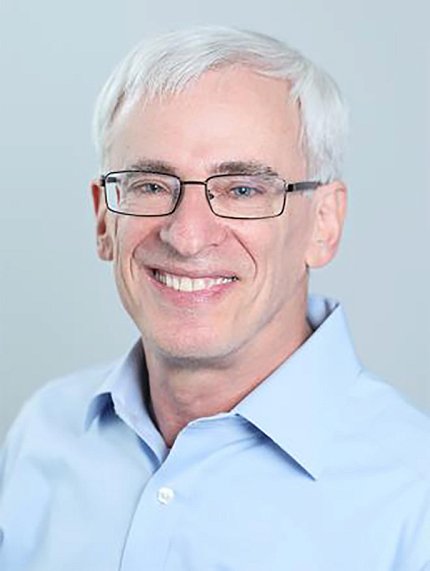NINDS’s Finklestein Retires
Dr. Robert Finkelstein, director of the Division of Extramural Activities at the National Institute of Neurological Disorders and Stroke (NINDS), has retired after a federal career spanning more than two decades.
“I’m ready to move on to the next phase of my life,” he said. He officially retired on Dec. 30, marking 24 years of federal service.
Finkelstein’s interest in science began at an early age with a fascination with astronomy.

“It was a long, winding road from there, but I eventually became interested in developmental neurobiology,” he said. “I was particularly amazed by the evolutionary conservation of the genes that control development.”
Finkelstein earned his bachelor’s degree in physics from the State University of New York at Stony Brook and his Ph.D. in biology from the Massachusetts Institute of Technology, where he studied myc oncogene expression in teratocarcinoma cells. He pursued postdoctoral training at Harvard Medical School, studying the genetic regulation of nervous system development in the fruit fly.
Among other accomplishments, Finkelstein isolated and studied the first Otx gene—a master regulator of head and brain development in flies and humans. He became an assistant professor in the department of neuroscience at the University of Pennsylvania School of Medicine (UPSM) in 1992, continuing his research on genes that control brain development in the fruit fly. He received tenure at UPSM in 1999.
Finkelstein joined NINDS in 1999 as a program director in the Neurodevelopment Cluster in response to a call to recruit program officials by then-NINDS Director Dr. Gerald Fischbach.
“I had just gotten tenure and renewed the grants that funded my lab, which gave me time to sit back and reflect on my interests,” said Finkelstein. “Gerry made the job sound challenging and important, which is exactly what it turned out to be.”
As a program director, Finkelstein developed many research initiatives and oversaw a portfolio of grants in neurogenetics, basic development, brain tumors, neurofibromatosis, Tourette syndrome and several neurodevelopmental disorders. He served as the first scientific team lead for the newly formed Neurogenetics Cluster.
In 2004, then-NINDS Director Dr. Story Landis appointed Finkelstein as extramural director. He became responsible for scientific planning and policy and coordinating the institute’s extramural scientific programs.
At the time of his retirement, the Division of Extramural Activities included the NINDS Scientific Review Branch, Grants Management Branch, Administrative Services Branch, as well as the Training Office, Diversity Office and the Office of Research Quality. He worked closely with NINDS Director Dr. Walter Koroshetz and served as the executive secretary of the National Advisory Neurological Disorders and Stroke Council for 20 years.
“I’m proud of spearheading a large-scale analysis that revealed that NINDS funding for fundamental basic research had been plummeting over the years,” said Finkelstein. “We developed a package of interventions that helped stem this decline, including pivotal statements and publications by the NIH and NINDS directors on the importance of basic science. I also led the development of the NINDS version of the R35 award, which I believe is having real impact on the field. But I’m probably most proud of working with many others to develop an open, interactive culture that makes NINDS a wonderful, stimulating place to work.”
Throughout his career, Finkelstein helped organize and develop various workshops and symposia—many of which he chaired or co-chaired. He authored and co-authored multiple journal articles and represented the institute on numerous NINDS and NIH-wide committees, including the NIH High-Risk Research Roadmap committee/implementation group (which created the NIH Pioneer Award) and the NINDS extramural science committee. His work garnered him countless accolades and awards.
“In the 1960s—I’m showing my age—Joseph Campbell, a scholar of mythology, coined the phrase ‘Follow your bliss,’” said Finkelstein. “At NIH, I’ve always championed investigator-initiated research—encouraging principal investigators to follow their interests, rather than trying to guess what ours are at NIH. I’ve applied that mantra to my own life as well and will continue doing so in retirement!”
In keeping with that mantra, relaxation and travel are at the top of Finkelstein’s retirement agenda in the short-term. Having played in a rock band pre-Covid, he also plans to play more music and support various social justice causes close to his heart.
“I’ll miss the people I’ve worked with tremendously,” he concluded. “They are a wonderful bunch of talented and dedicated individuals. I want to thank my friends at NINDS and across NIH for their support over the years, and to remind everyone at NIH that what they do—no matter what it is—is critically important. It’s too easy to forget that!"
